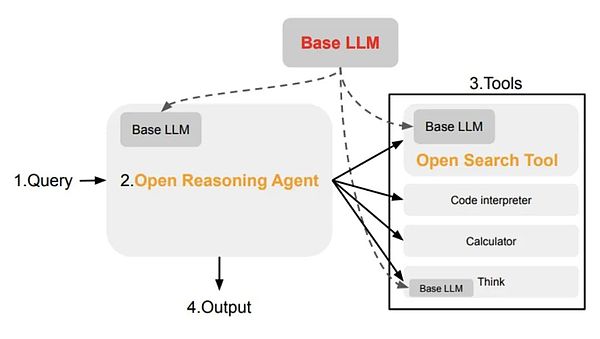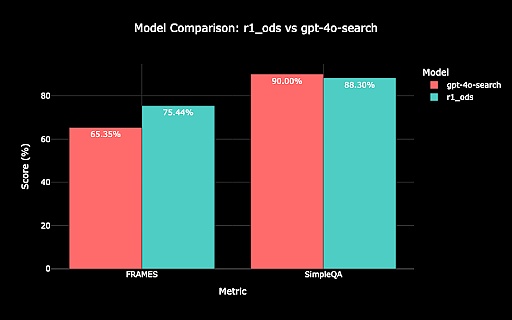Sentient Labs, which has raised $85 million in seed round financing led by Peter Thiel's Founders Fund, recently launched a new open source AI search framework - Open Deep Search (ODS). The framework aims to provide AI with search, reasoning and verification capabilities to alleviate the AI hallucination problem.
What is AI Hallucination?
AI Hallucinationrefers to the AI model generating information that seems reasonable but is actually wrong. For example:
Fabricating non-existent papers or citations
Confusing facts, causal relationships, or timelines
Piecing together conclusions that seem credible but are actually wrong
The root cause of this phenomenon is that current AI models rely mainly on pattern recognitionin training data, rather than truly understanding and verifying the authenticityof information.
ODS: AI's fact-checking assistant

ODSis an open source search agent system with multi-tool collaboration, designed to provide AI models with search, reasoning and verification capabilities. Its core components include:
Open Search Tool(OST)
OST can understand user intent, intelligently generate search terms, deeply crawl effective information from the Internet, and perform semantic rearrangement, filtering and aggregation to improve the quality and relevance of search results.
Open Reasoning Agent(ORA)
ORA simulates the multi-step reasoning process of humans, can actively perform secondary queries when information is insufficient, call multiple external tools or plug-ins, and even generate and execute Python code to solve complex logic or computing needs.
Advantages of ODS


Explainability:Every step of ODS is visible, and users can trace back the reasoning links and information sources of AI, thereby improving the transparency and credibility of the system.
Customizability:ODS supports access to any large language model and external tools or plug-ins. Users can freely customize inference rules according to their needs to meet different application scenarios.
Reduce wrong information:By cross-comparing multiple sources and actively conducting secondary queries to avoid drawing wrong conclusions based on keyword matching alone, ODS can effectively reduce the spread of wrong information, false information, and misleading information.
Real application examples
Medical field:AI models may generate incorrect diagnostic recommendations, leading to serious consequences. By integrating ODS, medical AI systems can automatically search for the latest medical research and authoritative guidelines before generating diagnostic recommendations to verify the accuracy of information, thereby improving the reliability of diagnosis.
Financial field:AI models may make investment recommendations based on outdated or erroneous data. ODS can help financial AI systems obtain the latest market data and analysis reports in real time, conduct multi-party verification, and ensure the accuracy and timeliness of investment recommendations.
Summary
The launch of ODS marks a major breakthrough in open source AI search technology. It not only improves the transparency and controllability of AI systems, but also provides developers with powerful tools to build more reliable and trustworthy AI applications. With the continuous development of ODS, we have reason to believe that open source AI will play a more important role in the future technology ecosystem.
 Miyuki
Miyuki










